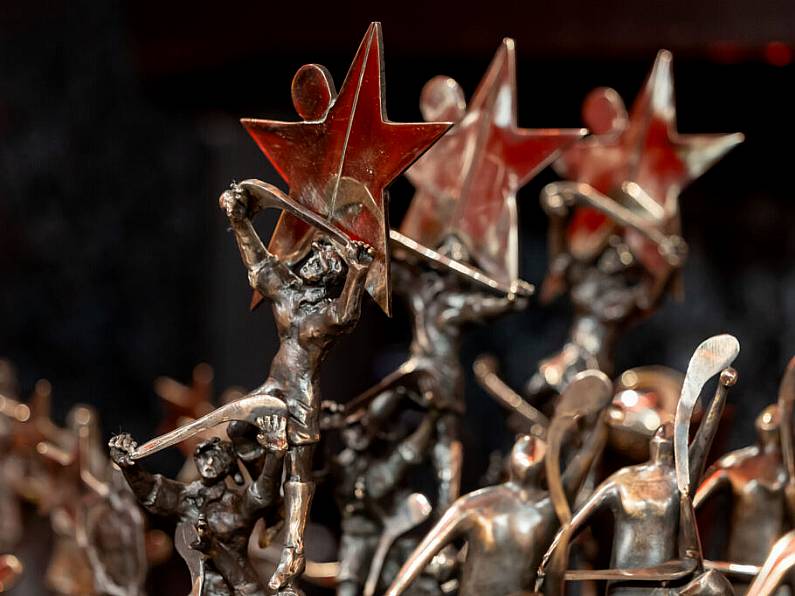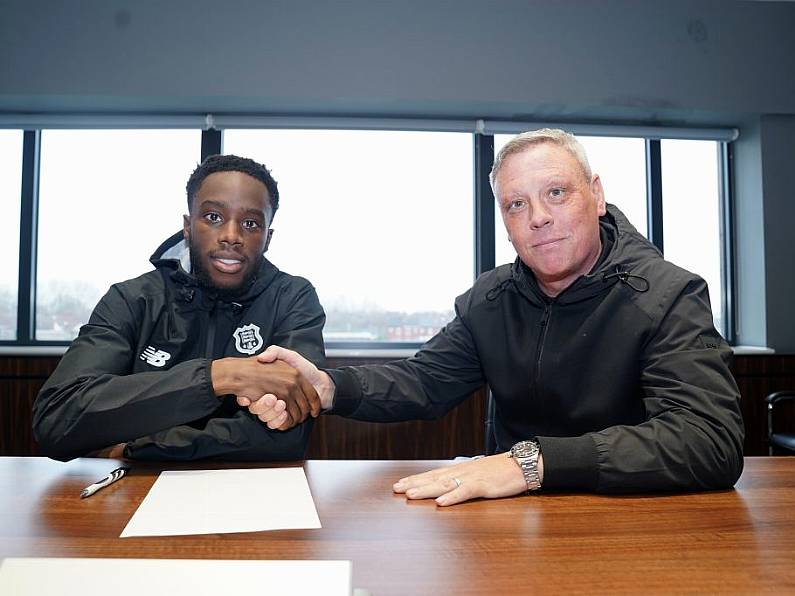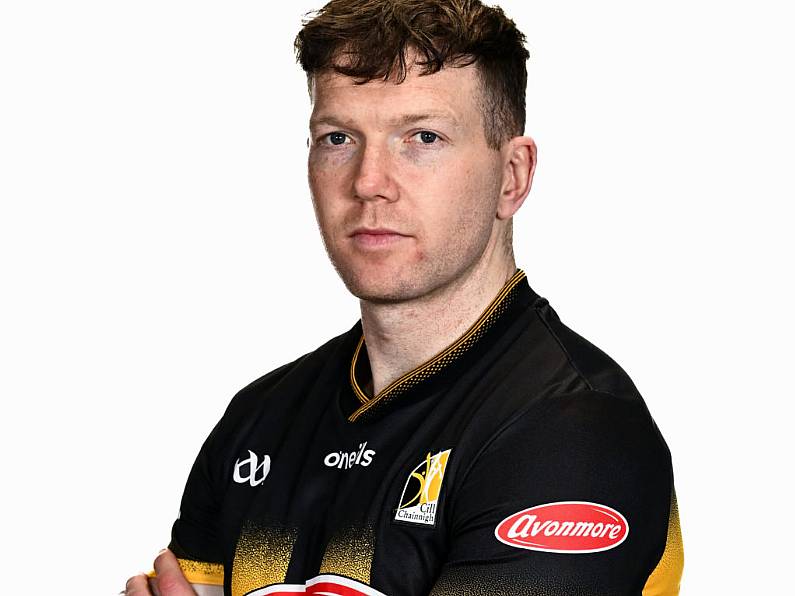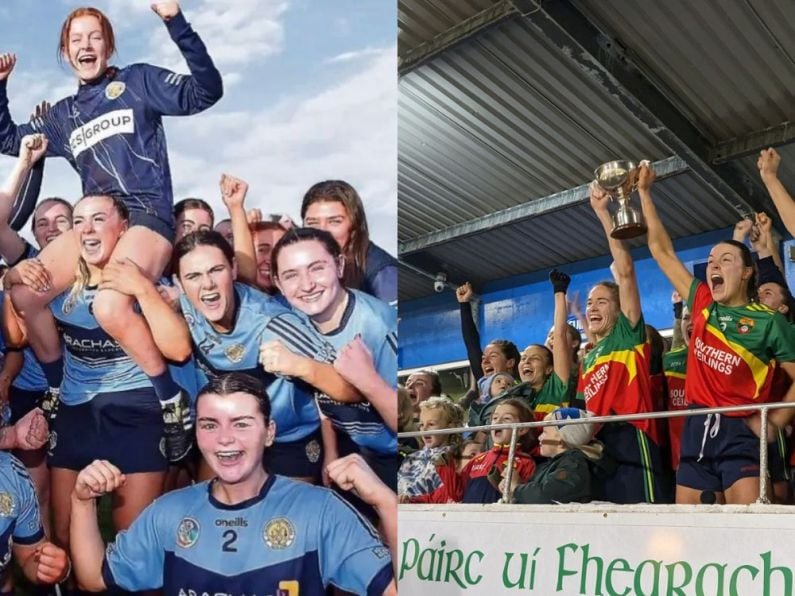You probably never knew that you needed to know how sports stories get written, but I’m happy to take you behind the curtain with the help of Bryan Curtis of The Ringer.
In a recent piece, Curtis identified and named a process familiar to every sportswriter in every sport.
The sidle.
It “looks deceptively simple”, wrote Curtis. He was referring to the NBA where, after a game: “...As a player sets out for the team parking lot (at home games) or the bus (on the road), a reporter pulls alongside him like a car merging onto the freeway.”
The two then sidle along - hence the name - and the player releases some details that make both the reporter’s night and the story he files back to base.
I commend Curtis for putting a name to this practice, which exists in every sport.
Your columnist had a decent example of his own some years ago after an All-Ireland semi-final, when loitering near a team bus in Croke Park.
(Loitering, sidling: what does it tell you that most journalists’ preferred moves with players are like the activities banned by Puritans for being occasions of sin?)
Anyway, an injured player came out and put his bag on the bus. The wrong side of the bus, near the wall, which meant he was squeezing his way out only to find his way barred by a largeish reporter inquiring about the precise nature of his injury before anyone else saw him.
I’m not proud.
On a slightly allied note, I remember hanging around (see above re: loitering) near one of the Croke Park dressing rooms for another game when I almost managed the greatest sidle of all time.
There was a county name and crest on the door which bore no resemblance whatsoever to the crest and name on the club polo shirt I was wearing, but the helpful security man - clearly believing anyone in official-type, branded gear in the vicinity was involved with the team - opened the door and ushered me into the inner sanctum.
I won’t lie. Temptation overcame me for a few seconds and I stepped over the threshold with a kind of hectic casualness - why yes, of course, I have the, ah, stuff here for the lads - but as I did I looked inside and locked eyes with a well-known player who was literally pulling his socks up.
I won’t lie here either. I chickened out then and put myself into reverse.
It’s easy to read Curtis’s piece as another death knell for reporting on sport, when you’re reduced to faux-intimacy as you walk alongside some kid who has his earphones jammed in so hard they’re practically meeting in the middle of his cranium, but the sidle is a move I can get behind, or parallel with.
It’s the irresistible presumption of parity - you scored three goals in front of eighty thousand people? Who hasn’t? - and the confidence trick implied by walking along with someone until they realise that, hey, what are you actually doing there? Are you going to get on the bus altogether? Are you driving the bus?
The parallels with the NBA aren’t exact - after this year’s All-Ireland football final, for instance, some of the Dublin footballers’ purposeful walk to the players’ lounge would have tested Rob Heffernan, though one of them did tell us he was going drinking, which was worth a paragraph, I suppose.
A few years ago I encountered a wandering, lost hurler who was looking for that same players’ lounge after a losing semi-final and I sidled along with him on his journey. I hope he found the bus again after I left him at the Artane Band rehearsal room.
That wasn’t my best sidle, though. The honour goes to the day in a provincial GAA venue many years ago when I fell into step with a manager who spoke fluently and quotably at length as he crossed the field, exited the gate and . . . turned into the gents, where he occupied a urinal, talking all the while.
One of those recordings where you just try to ignore the background noises when you transcribe it.
Should clubs be hosting discos?
Noel Baker of this parish reported on an interesting case last Friday morning — the comments of Judge James McNulty regarding applications he was hearing to hold discos specifically aimed at teenagers.
McNulty said such teens should be randomly breath-tested prior to those discos, adding that parents should be made sign up to a parental responsibility charter when buying event tickets.
While you’d say the judge has the right idea about breathalysing the kids, it’s contradicted somewhat by making parents sign a charter, surely: if your kids are drinking without your knowledge, what’s the point in signing a charter?
What caught my eye, though, was the presence of several sports clubs in court, as those clubs were the organisations seeking to hold those discos.
One of them pointed out that there’s a nurse on hand to sniff the breath of the disco-goers to see (or smell) if they have drink on board.
The disco is for secondary school first and second years.
I always thought a sports club was an organisation promoting health and fitness in a safe, welcoming space. Not somewhere that has to ensure a healthcare professional is in attendance at a function for 12 and 13-year-olds. Clearly I was wrong.
The point surely isn’t whether or not those clubs can organise such discos properly. The question is if they should be holding those functions in the first place.
A stroke of luck catching The Wave
Glad I finally tracked down Susan Casey’s The Wave, which was on my hit list for a while. The subtitle is In Pursuit of the Rogues, Freaks, and Giants of the Ocean, but she’s not referring there to the also-rans of the presidential campaign.
Casey’s book details her exploration of a phenomenon known to us all: ocean waves, though her fixation is with the kinds of freak waves which can sometimes appear and overwhelm ships out of the blue.
One frightening paragraph details just how many ships disappear without trace — and without media coverage — every year, presumably due to such freak waves. As Casey points out, compare the furore when an airliner disappears.
Is global warming going to make such waves more frequent? One expert gives a cautious yes, but adds: “You’re not going to be able to prove it until it’s too late.” (By the way, Casey’s book published before that? Try the title: The Devil’s Teeth: A True Story of Survival and Obsession Among America’s Great White Sharks. Next on the list.)
Well done to Crowley for ‘five-a-side’ games
The absence of a social form of Gaelic games is a long-running bugbear of this column, so well done to Cork GDA Colm Crowley for starting what he’s described as a GAA version of five-a-side soccer. Crowley issued a call on social media for men over 30 interested in playing modified versions of hurling and Gaelic football. He’s had a good reaction to his planned four-week pilot programme in Cork, with plenty of expressions of interest.
For more follow @SocialGAACork on Twitter; I can’t guarantee you’ll get a chance to puck your favourite GAA columnist around at one of the games, though.






